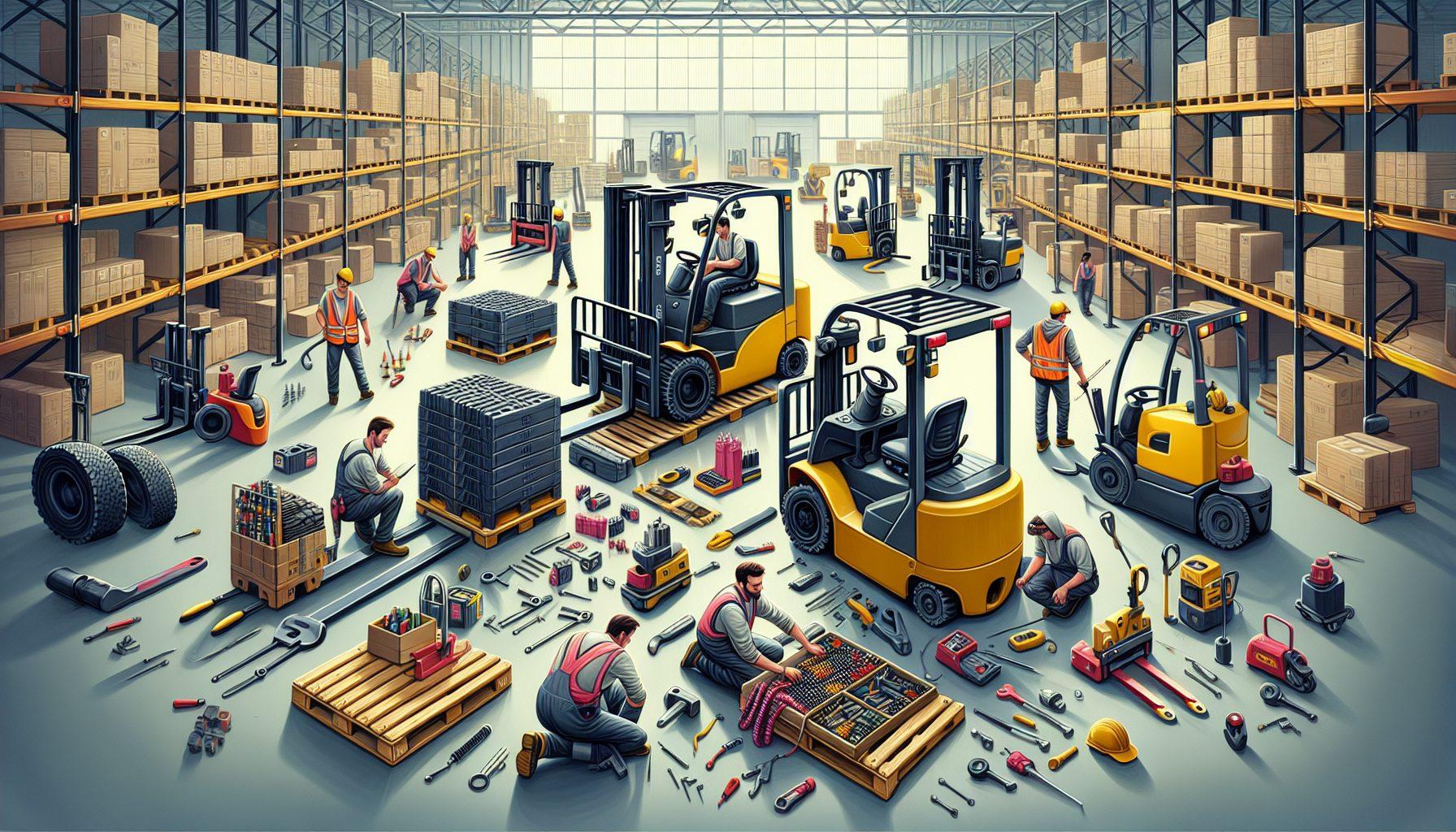Maintaining and managing Material Handling Equipment (MHE) is crucial for the smooth operations of any warehouse. However, there are common maintenance mistakes that can lead to costly downtime, decreased efficiency, and potential safety hazards. In this article, we will explore some of these common MHE maintenance mistakes and provide tips on how to avoid them, ensuring optimal performance and longevity for your equipment.
1. Neglecting Regular Inspections and Maintenance
One of the most common mistakes when it comes to MHE maintenance is neglecting regular inspections and preventive maintenance. It is essential to establish a proactive maintenance schedule to identify potential issues before they become major problems. Inspections should include checking for wear and tear, loose bolts, damaged parts, and fluid leaks. Regularly lubricating moving parts and ensuring all safety features are functioning properly is also crucial.
An effective way to stay on top of maintenance is to implement a computerized maintenance management system (CMMS). This system allows you to schedule and track maintenance tasks, generate reports, and document any repairs or replacements. By staying proactive with inspections and maintenance, you can extend the lifespan of your MHE and minimize unexpected breakdowns.
2. Ignoring Manufacturer’s Guidelines
Another common mistake is ignoring the manufacturer’s guidelines and recommendations for maintenance and operation. Each MHE has specific requirements that should be followed to ensure optimal performance and safety. These guidelines often include information about routine maintenance tasks, recommended replacement parts, and operating parameters.
By ignoring or neglecting these guidelines, you risk damaging the equipment, voiding warranties, and compromising safety. It is essential to familiarize yourself with the manufacturer’s recommendations and ensure that your maintenance practices align with their guidelines. This will help you avoid unnecessary repairs and maximize the lifespan of your MHE.
3. Inadequate Training for Operators and Maintenance Personnel
Proper training for both operators and maintenance personnel is crucial for the effective management of MHE. Many maintenance issues arise from operator error or improper handling of equipment. It is essential to provide comprehensive training on the correct operation of each piece of equipment, including safety protocols and best practices.
Additionally, maintenance personnel should receive training on the specific maintenance tasks required for different types of MHE. This includes training on conducting inspections, identifying potential issues, and performing routine maintenance. By investing in proper training, you can reduce the likelihood of costly repairs caused by user error and ensure that maintenance tasks are executed correctly and efficiently.
4. Lack of Inventory Management for Spare Parts
Having a well-managed inventory of spare parts is crucial for timely equipment repairs and minimizing downtime. However, many warehouses overlook this aspect of MHE maintenance. When a breakdown occurs, it is essential to have the necessary spare parts readily available to minimize the time taken for repairs.
Implementing an inventory management system for spare parts can help you track stock levels, identify critical parts that need to be replenished, and ensure that you always have the necessary components on hand. It is also advisable to establish partnerships with reliable suppliers who can provide quick access to spare parts when needed.
5. Lack of Communication and Collaboration
Effective maintenance of MHE requires strong communication and collaboration between the warehouse management, maintenance personnel, and operators. Lack of communication can lead to delays in identifying and addressing maintenance issues, resulting in increased downtime and decreased productivity.
Establish regular meetings or communication channels to encourage open dialogue between all stakeholders. Encourage operators to report any issues or concerns promptly. This will help maintenance personnel stay informed about potential problems and take proactive measures to address them. Similarly, maintenance personnel can provide feedback and recommendations to operators on how to optimize the performance of the equipment.
By avoiding these common MHE maintenance mistakes and implementing best practices, you can optimize the performance and lifespan of your equipment. For more information on MHE maintenance and how HCO Innovations can help maximize efficiency within your warehouse operations, visit our MHE management page.

